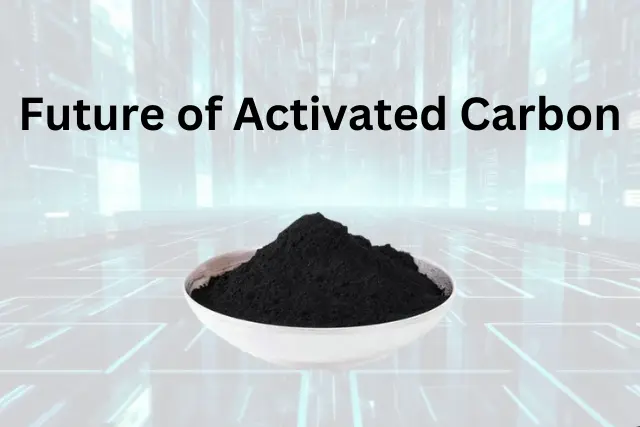Activated carbon, a versatile adsorbent widely used in various industries, is undergoing a transformative evolution with groundbreaking innovations and advancements. In this article, we will explore the latest developments in activated carbon technology and its potential impact on industries worldwide. Additionally, we will shed light on the leading manufacturer of activated carbon in India, pioneering the production of this remarkable substance.
The Evolution of Activated Carbon:
Activated carbon has come a long way since its discovery as a potent adsorbent. Traditionally derived from materials like coconut shells, wood, and coal, advancements in manufacturing techniques have broadened the scope of its applications. Modern-day activated carbon is engineered with higher surface areas and tailor-made characteristics to cater to diverse industry needs.
Activated carbon’s evolution has been marked by the refinement of activation processes. Physical and chemical activation methods have been enhanced, resulting in increased pore development and surface area. This translates to improved adsorption capacity and a wider range of absorbable substances. Additionally, the development of activated carbon fibers and nanoparticles has expanded its applications into niche industries, such as aerospace and electronics.
Innovative Applications:
The future of activated carbon lies in its expanding applications across multiple industries. From water and air purification to pharmaceuticals, food and beverage, and energy storage, activated carbon plays a pivotal role in removing impurities and enhancing product quality. Innovations have enabled the incorporation of activated carbon in cutting-edge technologies, like wastewater treatment, gas separation, and electric vehicle batteries.
In the environmental sector, activated carbon is at the forefront of combating pollution. Its unmatched ability to adsorb pollutants and harmful chemicals from air and water has made it an essential component in air purifiers, water filters, and even masks. The rise of microplastics in water bodies has also led to the utilization of activated carbon in water treatment facilities to address this growing concern.
In the healthcare industry, activated carbon-based filters are used in respirators and gas masks to protect against airborne toxins and infectious agents. Moreover, its application in pharmaceuticals helps in drug purification and refining processes.
In energy storage, activated carbon’s porous structure has opened new avenues for supercapacitors and energy storage devices, which are crucial for the renewable energy sector’s growth.
Sustainable Manufacturing Processes:
As environmental concerns rise, the focus on sustainable practices in activated carbon production becomes imperative. Manufacturers are embracing eco-friendly methods, such as using agricultural waste and employing energy-efficient processes to reduce the carbon footprint. This shift towards sustainability not only benefits the planet but also appeals to environmentally-conscious consumers.
Researchers are exploring bio-based precursors like agricultural residues and waste biomass for activated carbon production. These sources not only reduce waste but also offer an economical alternative to traditional raw materials like coal.
Furthermore, recycling spent activated carbon from industrial processes is gaining traction, reducing the need for fresh production while promoting a circular economy.
Advancements in Nanotechnology:
Nanotechnology has spurred a new era of activated carbon research. Nanoporous activated carbon materials exhibit enhanced adsorption properties due to their increased surface area and unique pore structures. These nanostructured materials show promise in the fields of gas storage, drug delivery, and environmental remediation, opening up exciting possibilities for the future.
Nanotechnology-enabled activated carbon has the potential to revolutionize various industries. For instance, in the automotive sector, it can significantly improve the performance of emission control systems, contributing to cleaner air and reduced greenhouse gas emissions.
The Rise of Manufacturer of Activated Carbon in India:
India, a leading player in the global activated carbon market, boasts several reputable manufacturers at the forefront of innovation. Among them, [Company Name], stands out as a pioneer in activated carbon production. With state-of-the-art facilities, cutting-edge research, and a commitment to sustainable practices, many activated carbon manufacturing companies have established themself as a trusted partner for industries seeking high-quality activated carbon solutions.
Many companies have invested significantly in research and development, driving advancements in activated carbon technology. Its products have gained recognition for their superior adsorption capabilities, making them an ideal choice for diverse industrial applications.
Conclusion:
The future of activated carbon shines bright with ongoing innovations and advancements. As this exceptional adsorbent finds its way into a myriad of industries, its positive impact on the environment and product quality cannot be overstated. With manufacturers leading the way in India, the world can expect to witness a greener, cleaner, and more efficient future, powered by activated carbon technologies.



